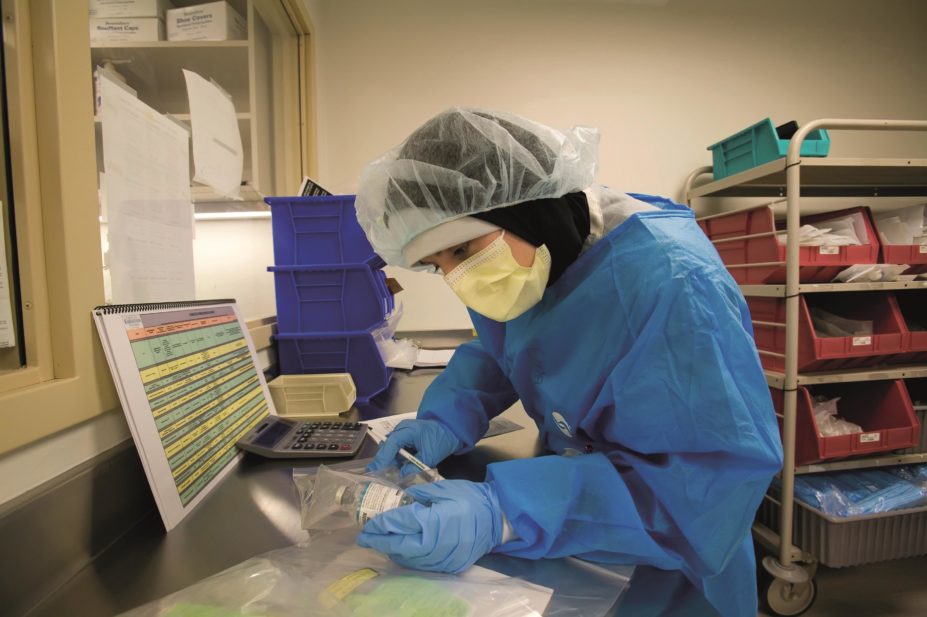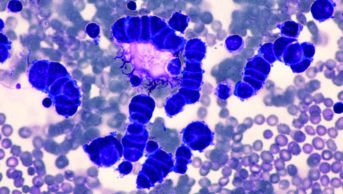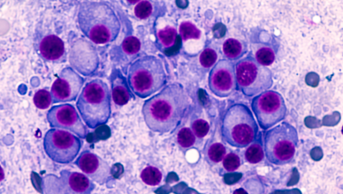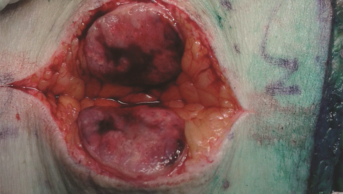
Jim West / Alamy Stock Photo
The price of originator cancer drugs varies widely between high-income countries and the UK pays one of the lowest prices in Europe, according to research published in The Lancet Oncology
[1]
on 3 December 2015.
Researchers led by Sabine Vogler, lead author from the World Health Organization (WHO) Collaborating Centre for Pharmaceutical Pricing and Reimbursement Policies in Vienna, Austria, reviewed official drug price data for 16 European countries from the Pharma Price Information (PPI) service in Austria, and from the pharmaceutical schedules in Australia and New Zealand.
The study shows that in June 2013 the manufacturer’s factory list price per tablet or vial of 31 original cancer brand drugs varied widely from 28% to 388% between the highest priced country and the lowest priced country. The greatest price difference was for gemcitabine, which cost an average of €129, but its price varied from €43 in Australia to €209 per vial in New Zealand.
Cancer drug prices tended to be lower in Greece, Portugal, Spain, and the UK, but were higher in Switzerland, Germany, Denmark, and Sweden.
All Greek prices were in the lowest first quartile; 14 (58%) of the 24 drugs for which Greek price data were available had the lowest prices of the 18 countries in the study. In contrast, prices in Sweden were in the upper fourth quartile for 26 (84%) of the 31 cancer drugs. Prices were also in the fourth quartile for 19 (73%) of the 26 drugs for which price information was available in Switzerland and 22 (71%) of 31 drugs in Germany.
“Public payers in Germany are paying 223% more in terms of official prices for interferon alfa 2b for melanoma and leukaemia treatment than those in Greece,” says Vogler. “For gefitinib to treat non-small cell lung cancer, the price in Germany is 172% higher than in New Zealand.”
The researchers looked at but did not include confidential discounts agreed as part of managed-entry arrangements in countries such as Australia, Italy, the UK and the Netherlands. “Some high-income countries have managed to barter the manufacturers down to lower prices, but these agreements, including the agreed prices, are confidential,” says Vogler.
“Although these agreements ensure patient access to new drugs, other countries risk overpaying when setting drug prices through the common practice of external price referencing, or international price comparison, because they can only use the official undiscounted prices as a benchmark. There needs to be far more transparency,” she adds.
David Watson, director of pricing and reimbursement at the Association of the British Pharmaceutical Industry, says the study is further evidence that newer medicines are at affordable prices in the UK, and acknowledges the difference between the often quoted ‘list price’ and the lower prices actually paid for medicines by the NHS.
“This suggests that the UK is getting a fair deal with regards to medicines pricing and that the NHS can be assured that it is getting good value for money. In addition, the UK also has the benefit of a unique scheme where the pharmaceutical industry pays hundreds of millions of pounds back to the government each year,” he adds.
“Despite this we know patients are still not getting access to some new and innovative medicines. The UK has poor outcomes for cancer care compared to some of these comparable countries. If we really want our hospitals here in the UK to provide world class cancer care, we need to invest and ensure our system can accelerate the use of clinically and cost effective medicines.”
References
[1] Vogler S, Vitry A & Babar Z. Cancer drugs in 16 European countries, Australia, and New Zealand: a cross-country price comparison study. Lancet Oncology 2015. doi:10.1016/S1470-2045(15)00449-0


